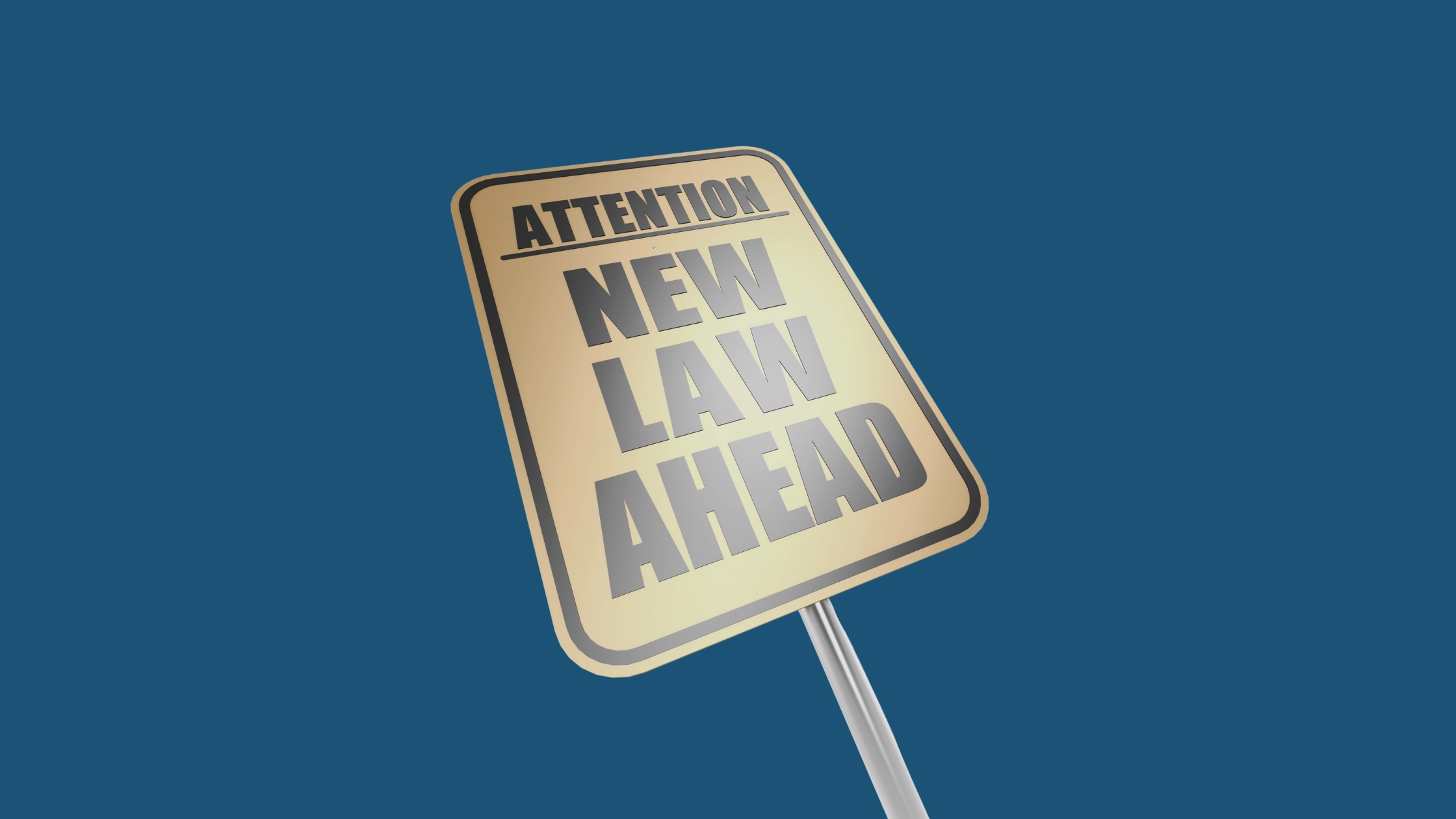To begin, the opening summary ends with one of those infuriatingly ambiguous phrases often included in law, this one being “AMONG OTHER THINGS.” This appears to be an obvious opening for as yet undefined additions to this law—exactly what should be avoided as it fits right into the Left’s modus operandi.
Moving on, it is clear in this bill, like so many others, that the “definitions” portion is being effectively used not to just enlarge or clarify our vocabulary. The definitions are meant to change our thinking and understanding of what previously were simple and accepted meanings of common words, like “gender.” Even worse, it will craft those new meanings within the context of the cultural engineering goals of the Left’s change agents, whose most fertile soil lies in the public education system. To compound the damage, this bill now codifies into law these definitions as recognized legal terms, putting them under man’s law and redefining critical aspects of basic human physical and psychological existence. People have been already been very effectively sensitized and live under the control of more and more word and mind manipulation—fully confirmed and demanded by the law.
Let’s look specifically at the phrase “gender transition.” Legally defined in 4624, this process is now recognized and legitimized in a way that encourages it to be seen as acceptable, potentially healthy, and a part of more people’s developmental experiences than most of us used to believe. Yes, sexual confusion was discussed a great deal by Sigmund Freud, but even in recent past, very few people were promoting the idea that this confusion should be viewed as anything more than a transient phase for some adolescents—and rare in those younger. The perverters know that this is an easy developmental phase during which to “catch” the vulnerable, and now we have a law that defines “gender transition” as if it should be a legitimate choice. In other words, legislators have codified this process as a legal entity. In reality, your gender IS your sex—male or female, unless there is a rare anomaly. If we continue to allow anything different than truth or reality, there will be continual and growing perversity.
Several definitions in 4624 address medical practices. Now that they have been listed in law, they are confirmed codified medical procedures. People would be wise to watch how these practices continue to be implemented, despite this supposed “ban” on what is being done to children. A simple amendment could have dramatic consequences. The courts may or may not be used to see that everyone gets the “right” to choose a gender. By letting the Right get this law enacted, the Left needs only to start to blur the edges to eventually reach their goals without conflict, particularly with some of the other mistakes in this law. And who what might be the impact of loony judges. Or the concurring opportunities that may be provided in future laws in a variety of places within the state statutes that offer options that conflict with what is supposedly banned here.
Of course this law, like far too many others, includes an almost inevitable and damning concession. In Section 44-42-320(B) we are reminded that this section of the law must comply with federal and state law. If laws are subject to the control of federal laws, within the state, it is only a matter of time before this law will become moot, given the direction of our federal tyranny.
Ironically the law goes on to rely on “…a health care professional….” This “professional” is precisely the “doctor,” who in this instance has initiated a banned procedure, we must NOT trust. Coupling this bill with the impending “Health Czar” bill (S915), could lead to a very dangerous place. Yes, such experiments (for that is what we are really discussing) should be terminated, but leaving it up to someone who initiated it? Is there not a safer and more prudent means to get a child out of this terrifying situation? Or better yet, prevent this from having started in the first place? Despite the hope that this will not happen in the future, who knows?
As we proceed through this debacle, we encounter another favorite permissive legal word, i.e. “may,” perhaps the most ridiculous word in most laws. A law generally allows, requires or prohibits something. If “may” is used, the interpretation of what, when or how often becomes ambiguous or even irrelevant. “May” opens any section to personal or court interpretation as to what options one has to follow the law. “May” one choose to simply ignore the law?
To mention “mental health services” as 4624 does in today’s world is another boondoggle. This is a range of “services” that has been deliberately changed by social and cultural engineers, as well as by organizations like the American Psychological Association to include its latest DSM. They have redefined “mental health” and “care” and discourage or even prohibit many formerly sound and moral forms of therapy as well as include, encourage, or often require, new and more “diverse” and “inclusive” forms of “care” and intervention. Many associations dealing with social work, psychological and counseling services, and other “mental health” providers are requiring, during client interaction or initial intake, that practitioners include consideration, mention, or even further discuss personal issues regarding “gender,” diversity, and what were formerly religious, moral or biased questions. As time goes on, this section may provide fertile ground for the Left to amend this law.
Like far too many laws of this type, within the school environment the recourse, penalties, and enforcement processes are likely to be difficult for a plaintiff to implement. They are vague, and easily evaded by a Leftist school culture and establishment used to getting around what the Right thinks they have set up as a defense.
As far as helping children in school, under the “Comprehensive Health Education Program” chapter in Title 59, this law falls into dangerous territory. Section 59-32-20(D) already allows for the “board” to “… continue to revise age-appropriate standards and concepts that address mental, emotional, and social health.” This means that there can, and probably will be, a tie created between “gender” and “mental, emotional, and social health” that will interfere with the clarity and enforcement of at least parts of 4624. Putting a new section into Title 59 under the state board’s control (a board whose power is already extraordinary), there is no telling where, when or how the state standards will subvert or conflict with, the intent of this law.
Section 59-32-36 purports to place restrictions and obligations on school personnel. Some of the words chosen for this purpose are interesting. “Knowingly” is an odd choice. Does this mean “I didn’t realize…” will be a valid excuse? At what point does a school employee have to take this all seriously? How does each school employee know what is “normal” banter or “age-appropriate” questioning and awareness of self and others, as opposed to a true exhibit of more serious “mental health” disturbance. It is frustrating that it is becoming so difficult to discuss these situations, given the distortion of the meanings of our words due to the cultural context in which they now exist.
How does this application to the school environment fit in with the confidentiality of certain school personnel and their meetings with a child, e.g. a guidance counselor, school psychologist, social worker, etc.? If a parent doesn’t know what is being done in a private session, how can they complain or know this is happening? What if something is flatly denied? The potential for ambiguity and misunderstanding can obfuscate any claims. We must also not forget that the public schools have the police power of the state behind them. Many of today’s educators feel quite protected by this knowledge, whether or not it will cover them for some of the actions they make take when they feel “passionate.”
The last section, “Severability,” raises a critical question regarding the law’s potential to be found “…unconstitutional, invalid, or otherwise ineffective.” It reads in part, “If any section, subsection, paragraph, subparagraph, sentence, clause, phrase, or word of this act is for any reason held to be unconstitutional or invalid, such hold shall not affect the constitutionality or validity of the remaining portions of this act….” How would such a question be raised, such a holding happen and by whom—court ruling, change to Title IX, (quite a likely occurrence, which could make most of this law moot), etc.? Unconstitutional is one thing, but who has the power to hold it “invalid?”This is a common phrase in modern law; could it be that law is being stretched beyond its appropriate scope of power, often simply “testing the waters?” In this country at this time, this may reflect a deeper problem than this superficial bill and many other much heralded bills are addressing.
One more comment. It may be noteworthy and relevant to mention that in 2018 a court decision in South Carolina found Section 59-32-30(A)(5) to be void. This section reads “The program of instruction provided for in this section may not include a discussion of alternate sexual lifestyles from heterosexual relationships including, but not limited to homosexual relationships except in the context of instruction concerning sexually transmitted diseases.” This court action has effectively legalized what has been going on for years—and was probably bolstered by the reality that teaching about “alternate” sexual relationships and acts has been happening and is now culturally acceptable. There is no way to control how this huge opening for teaching the “normality” of feelings and perversities can and will be used to subvert the intentions of H4624.
To conclude. Reading a bill critically can mean looking at it as if one were a liberal socialist/demonrat/communist/globalist/anti-American. Without that perspective people might think a bill means just what they want it to mean and will mean that in perpetuity. Just get the idea on paper, and that’s what will happen. However, more often than not, a law, especially a new law, actually provides the Left with a base upon which to build and expand its agenda. 4624 requires and deserves this perspective.

Subscribe to ConservaTruth's Email Newsletter for curated insights on South Carolina's legislative activities and conservative viewpoints, delivered straight to your inbox! With vetted and easy-to-understand information, our newsletter empowers you to become an informed and engaged citizen, actively participating in safeguarding our cherished Constitutional values. Don’t miss out on crucial updates—join our community of informed conservatives today!





Comments